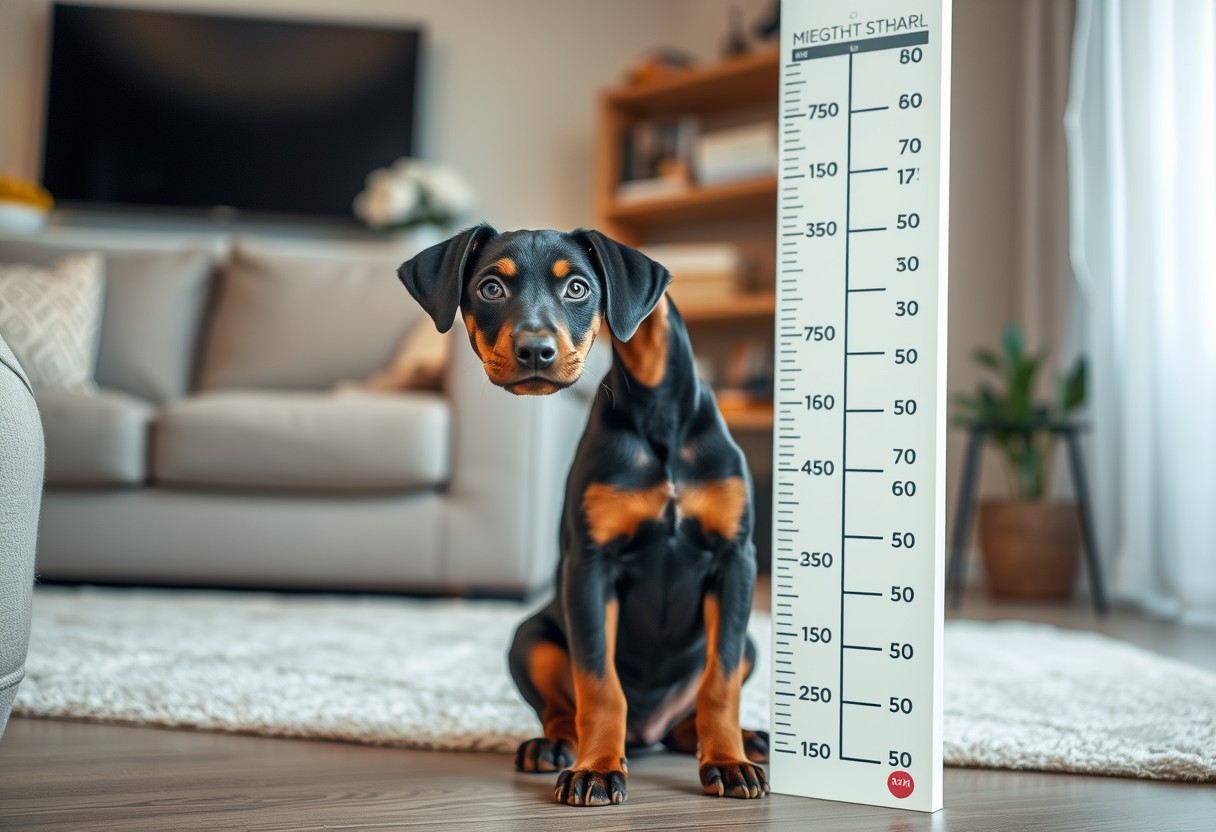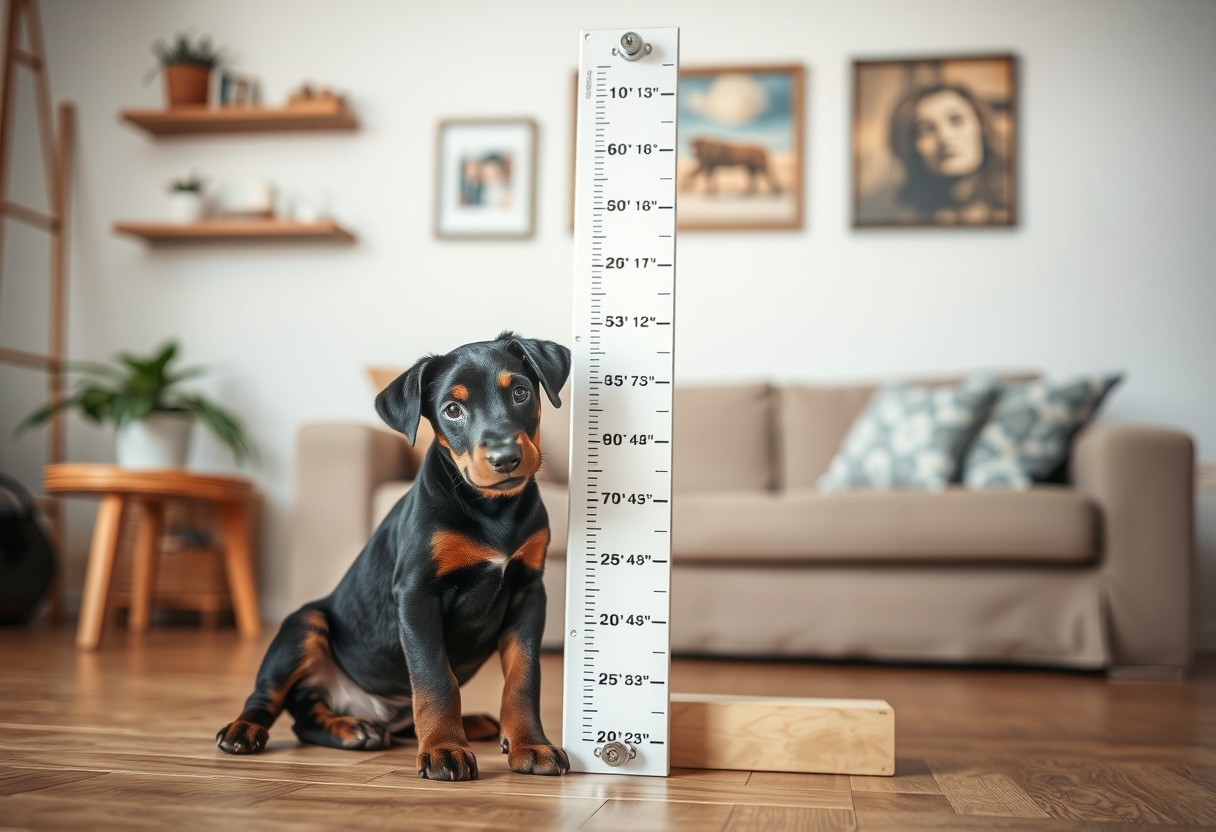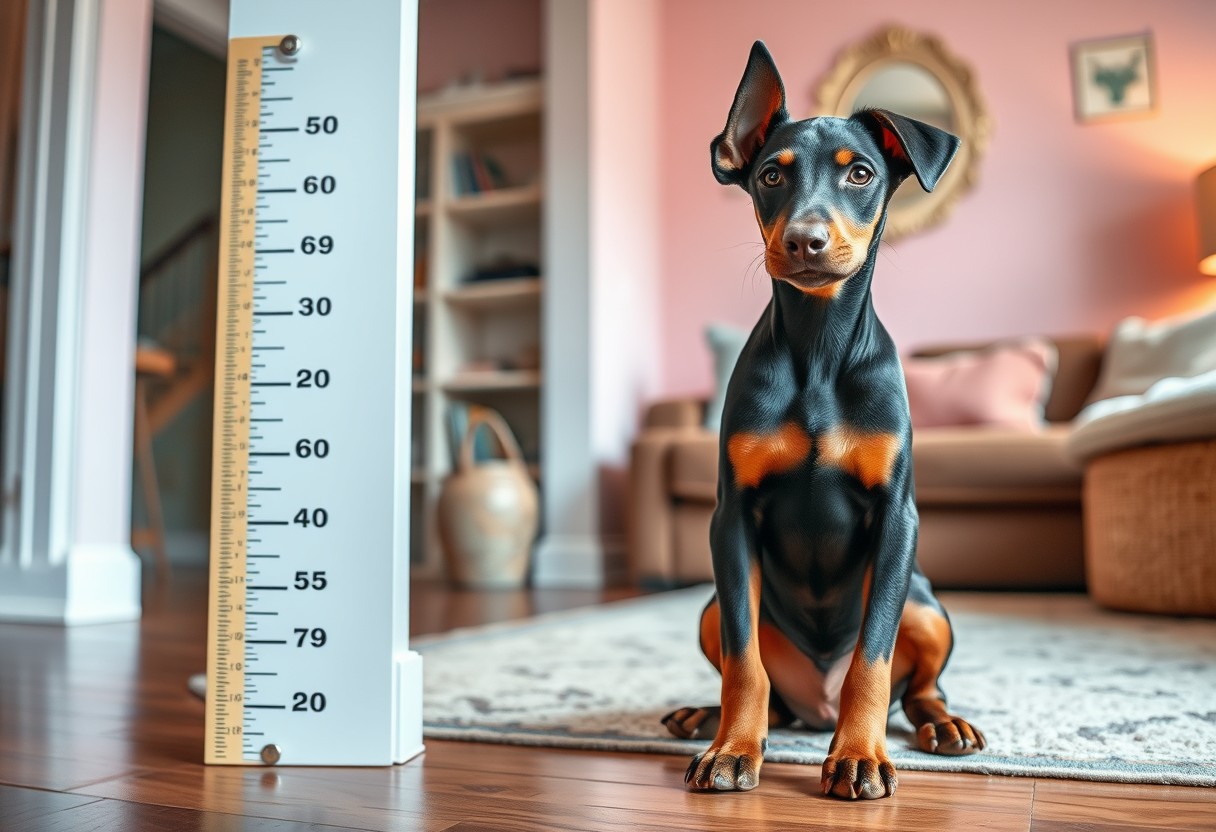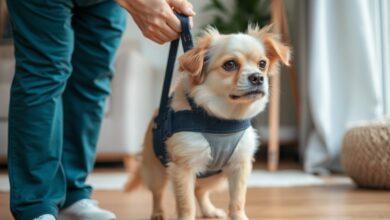When Does a Doberman Stop Growing? Growth Milestones

Doberman puppies grow at an incredible rate, and understanding when they stop growing is crucial for your dog’s health. Typically, Dobermans reach their full size around 2 years of age, but growth milestones vary, especially in their first year. Knowing these milestones will help you provide the right nutrition and care needed during this critical development phase. In this blog post, you’ll learn what to expect as your Doberman grows, so you can support them every step of the way!
Key Takeaways:
- Growth Duration: A Doberman typically stops growing around 18 to 24 months of age.
- Size Milestones: By around 12 months, most Dobermans reach approximately 75-80% of their adult size.
- Weight Factors: Adult weight can vary significantly, with males ranging from 75-100 lbs and females from 60-90 lbs.

Understanding Doberman Growth
The growth of a Doberman is a crucial aspect of their development, as they transition from a vulnerable puppy to a strong adult dog. Typically, Doberman puppies experience rapid growth in their first year, which is marked by an increase in weight and height. Knowing these growth patterns helps you provide better care and manage your expectations as your dog grows.
The Doberman Lifecycle
To better understand your Doberman’s growth, it’s important to be aware of their lifecycle. They go through various stages: puppyhood, adolescence, and adulthood, each with distinct physical and behavioral traits. Throughout these stages, you can expect changes in their size, energy levels, and temperament.
Factors Influencing Growth
Understanding factors influencing growth is key to ensuring your Doberman reaches their full potential. Several elements can impact their growth, including:
- Nutrition: A balanced diet supports healthy growth.
- Genetics: Bloodlines play a significant role in determining growth patterns.
- Exercise: Regular activity ensures proper muscle development.
- Health: Illnesses can stunt growth and development.
Any of these factors can significantly affect your Doberman’s growth trajectory.
Another important consideration is that your Doberman’s growth is largely dependent on their nutrition, as well as genetics and overall health. Ensuring they receive a well-balanced diet with the right proportions of proteins, carbohydrates, and fats is vital for their growth. Additionally, regular exercise contributes to muscle development and overall well-being. Keep in mind, chronic health issues can seriously impede growth, so staying on top of your dog’s health is crucial. Any lack of attention to these aspects could result in negative outcomes for your Doberman’s growth and overall health.
Growth Milestones by Age
While every Doberman grows at their own pace, there are general milestones that can help you chart your pup’s development. Understanding these stages enables you to provide the proper care and training suited to their age and needs. Keep in mind, consistent nutrition and socialization can make a significant difference during these formative years.
Puppy Stage (0-6 Months)
Milestones during the puppy stage include rapid growth in size and weight, often doubling or tripling by six months. You will notice significant changes in their behavior, as they become more playful and curious about their surroundings. Early socialization and training during this period are crucial for developing a well-rounded adult Doberman.
Adolescence (6-18 Months)
Any Doberman entering adolescence will experience a slower but steady growth pattern as they approach their adult size. During this time, it’s vital to maintain a balance between exercise and training, as they may exhibit more energy and independence. Be prepared to handle challenging behavior, such as stubbornness or testing boundaries, which is common in this stage.
Another important aspect of this adolescence phase is their increased need for physical and mental stimulation. You should ensure that your Doberman receives plenty of exercises to prevent destructive behaviors stemming from boredom. Regular training sessions will help reinforce obedience and strengthen your bond. Additionally, socialization with other dogs and people is vital, as this can help mitigate potential aggression or anxiety as they grow. Keep in mind, a well-trained dog is a happy dog!
The Importance of Nutrition
Despite misconceptions that dogs can thrive on scraps or inadequate diets, proper nutrition is crucial for your Doberman’s growth and overall health. Providing high-quality food tailored to their specific needs supports not only their physical development but also their energy levels and immune system. A well-rounded diet ensures that your pup grows into a strong, healthy adult, helping them reach their full potential.
Nutritional Needs for Healthy Growth
Importance of a balanced diet cannot be overstated. Dobermans need a mix of protein, healthy fats, carbohydrates, vitamins, and minerals to support their rapid growth stages. Choosing high-quality commercial dog food or preparing home-cooked meals that meet these nutritional requirements will ensure your Doberman flourishes during their formative months.
Supplements and Recommendations
Healthy supplements can play a vital role in filling nutritional gaps in your dog’s diet. While most high-quality dog foods provide the necessary nutrients, certain situations may call for additional factors like glucosamine for joint health or omega-3 fatty acids for a shiny coat. It’s best to consult with your vet before starting any new supplement to ensure it’s safe and beneficial for your particular Doberman.
For instance, aiming for supplements that support your Doberman’s overall well-being can be advantageous. Glucosamine is often recommended to maintain joint health, especially as they grow heavier. You might also consider incorporating probiotics to enhance digestion and boost their immune system. Remember to introduce any supplements gradually and to always consult your veterinarian for tailored advice that aligns with your dog’s specific health needs and growth stage.
Physical Development
For a Doberman, physical development is a vital aspect of their growth. As they mature, you’ll notice changes in their body shape, muscle definition, and overall stature. Recognizing these changes helps you provide the right support and care during their formative years, ensuring they develop into strong and healthy companions.
Size and Weight Expectations
Weight typically varies for Dobermans based on gender and individual genetics. Males generally weigh between 75 to 100 pounds, while females usually range from 60 to 90 pounds. By the time they reach their full growth, you can expect your Doberman to settle within these weight ranges, reflecting their robust nature.
Muscle Development
On the road to adulthood, your Doberman will undergo significant muscle development, showcasing their athleticism and strength. Proper nutrition and regular exercise are key factors that contribute to this muscular growth as they transition from playful puppies into powerful adults.
Expectations of muscle growth can vary widely based on your Doberman’s diet, exercise regimen, and genetics. As your puppy matures, engaging in regular physical activity will enhance their muscle development, ensuring they build a strong frame. However, avoid over-exercising them too early, as this could lead to injuries that affect their long-term health. Keep an eye on their body condition to avoid excessive weight gain or loss, aiming for a healthy balance that supports their active lifestyle.

Behavioral Changes During Growth
All Doberman puppies undergo significant behavioral changes as they grow. You’ll notice shifts from playful and energetic antics to a more focused and composed demeanor. This transition is necessary as your dog gradually develops maturity and self-control, making training and socialization critical during this time. Be patient and consistent; it’s a crucial period for establishing boundaries that foster their intelligent and loyal nature.
Training and Socialization
Any early and continuous training and socialization are vital to your Doberman’s development. Engaging in positive reinforcement methods while exposing your pup to various environments, people, and other animals will help them grow into a well-rounded adult. Recall, your proactive approach will encourage confidence and reduce anxiety in new situations.
Signs of Maturity
Growth isn’t just about physical changes; it also encompasses behavioral maturity. You’ll start to notice that your Doberman becomes less impulsive and more thoughtful in their actions. Signs of maturity typically appear around 1 to 2 years of age, including a reduction in hyperactivity, improved obedience, and a more protective yet calm demeanor. Additionally, a mature Doberman exhibits a heightened ability to focus on tasks and is more likely to respond positively to your commands, showcasing the results of your training efforts.

Health Considerations
Now that you know when a Doberman stops growing, it’s crucial to keep their health in mind during this developmental phase. Dobermans can be prone to certain health issues as they grow, so being aware of these concerns can help you make informed decisions to support your furry friend. Maintaining a healthy diet, regular vet visits, and an active lifestyle will contribute to your Doberman’s overall well-being.
Common Growth-Related Issues
Growth-related issues can affect your Doberman during their growth spurt. These may include conditions like hip dysplasia, elbow dysplasia, and panosteitis. It’s necessary to observe your dog’s activity and behavior closely, as early detection of any discomfort or irregularities can make a significant difference in their overall health and happiness.
When to Consult Your Vet
To ensure your Doberman grows up healthy, regular check-ups with your vet are vital, especially if you notice any unusual signs. Keep an eye out for symptoms like limping, reluctance to exercise, or noticeable swelling. Early intervention can help prevent more serious health issues down the line.
Consult your vet if you notice any concerning behavior or symptoms, as they can provide insights and recommendations tailored to your Doberman’s needs. Regular health screenings can help spot issues before they escalate, promoting a positive environment for your pup. Do not forget, early care contributes to a longer, healthier, and happier life for your furry companion!
Conclusion
So, as you navigate through your Doberman’s growth journey, remember that they typically reach their full height around 12-18 months, while filling out in muscle until about 2-3 years old. Each dog is unique, so it’s necessary to keep an eye on their development and consult your vet if you have concerns. Enjoy every moment with your Doberman during this exciting time, as they grow into the loyal companions you cherish!
FAQ
Q: At what age do Dobermans typically stop growing?
A: Dobermans usually reach their full height around 12 to 18 months of age. However, they may continue to fill out and gain muscle mass until they are around 2 to 3 years old. It’s important to monitor their growth and health during this period to ensure they develop properly and maintain a healthy weight.
Q: What are some key growth milestones for a Doberman?
A: Dobermans experience several significant growth milestones:
1. Puppy Stage (0-6 months): Rapid growth occurs, with most puppies doubling their weight in the first few months. They develop basic motor skills and begin socialization.
2. Juvenile Stage (6-12 months): Growth slows down but continues. The dogs begin to show signs of maturity, both physically and behaviorally, as they may start to become less playful and more independent.
3. Young Adult Stage (12-24 months): Growth plates begin to close, marking the transition into adulthood. By 2 to 3 years, they reach full physical maturity, characterized by defined muscle and overall adult size.
Q: How can I ensure my Doberman grows healthy and strong?
A: To support healthy growth in your Doberman, consider the following:
1. Nutrition: Feed a high-quality puppy food formulated for large breeds, ensuring it has the right balance of nutrients, including protein, fats, and vital vitamins and minerals.
2. Regular Vet Check-ups: Schedule regular visits with a veterinarian to monitor growth progress and to manage any health concerns early on.
3. Exercise: Provide regular exercise tailored to their age. Puppies need playtime, while older dogs benefit from more structured activities to develop strength without risking injury.
By paying attention to nutrition, health care, and exercise, you can help ensure your Doberman grows up healthy and strong.





